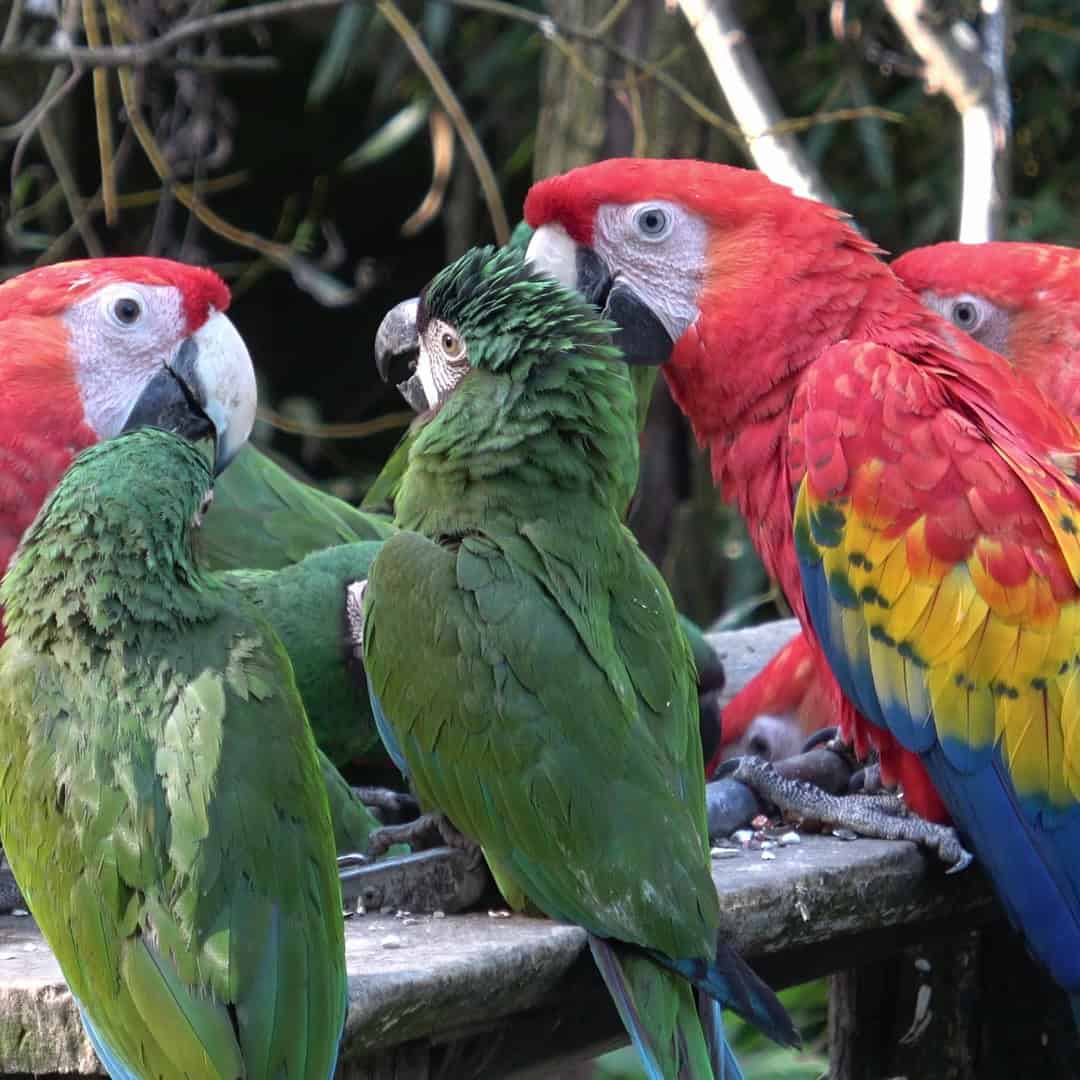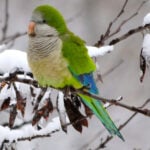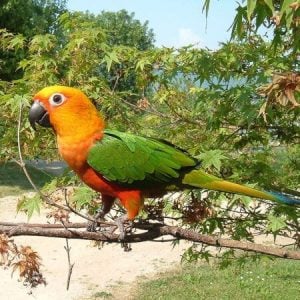
The Pros and Cons of Different Parrot Species as Pets
Last Updated on by Mitch Rezman
Choosing a pet parrot can be an exciting but daunting decision, as each species has unique characteristics and care requirements.
From size and noise levels to intelligence and personality traits, every parrot species offers something different.
Understanding the pros and cons of popular parrot species can help you make an informed decision that aligns with your lifestyle. Let’s explore some well-loved parrots, their behaviors, and what to consider before bringing one into your home.
Parrots are fascinating pets, known for their intelligence, beauty, and strong personalities.
However, the diversity among parrot species means that not every bird is a perfect fit for every household.
By considering the pros and cons of each species, you can choose a parrot that will complement your lifestyle and bring joy to your home for many years.
Factors to Consider When Choosing a Parrot
Before diving into specific parrot species, it’s essential to understand the key factors influencing the choice:
- Noise Level: Some parrots are notorious for their loud vocalizations, while others are relatively quiet.
- Space Requirements: Larger species need ample space to move and explore, while smaller parrots can adapt to limited environments.
- Lifespan: Parrots are long-lived pets. Some can live up to 80 years, which means a lifelong commitment.
- Personality and Intelligence:** Parrots vary widely in personality, from cuddly and affectionate to independent and reserved. Some are exceptional talkers, while others are more subdued.
African Grey Parrots: The Intellectuals
Pros:
Intelligence: African Greys are considered the geniuses of the parrot world. They have an extraordinary ability to mimic human speech, understand context, and even solve complex puzzles.
Strong Bond: These birds form deep connections with their owners and can become very affectionate.
Cons:
High Maintenance: Due to their intelligence, African Greys need a lot of mental stimulation and interaction. Without it, they can develop behavioral problems such as feather plucking.
Sensitive: They are prone to stress and may become nervous or anxious in chaotic environments.
Ideal For: Experienced bird owners who can provide ample mental stimulation, attention, and a calm, stable environment.
Feathered factoid: To prevent incestuous relationships in the wild, greys will form a second bond after 18 months of age with a second mate. This confounds many humans.
Macaws: The Vibrant Giants (sometimes)
There is a whole catalog of “mini macaws” that should not be over looked
Pros:
Sociable: Macaws are playful, bold, and enjoy socializing with their human companions.
Colorful: Their vibrant feathers make them one of the most stunning parrots to have as pets.
Cons:
Loud: Macaws are loud talkers and screamers. Their noise level can be a deal-breaker for some.
Space Requirements: They need large cages and plenty of room to stretch their wings and play.
Long Lifespan: Some species can live up to 60-80 years, making them a multi-generational commitment.
Best Suited For: Owners with large homes, who can handle their noise level and have time for regular interaction.
The two macaws in the video above were rescued (long story) by an
individual who never had a bird in his life, 25 years ago. There are no rules.
Cockatiels: The Charming Companions
Pros:
Affectionate: Cockatiels are known for their sweet, friendly nature and enjoy human interaction.
Relatively Quiet: Compared to larger parrots, they are quieter and less demanding.
Easy to Care For: They adapt well to smaller cages and are relatively low maintenance.
Cons:
Moderate Lifespan: They live around 15-20 years, shorter than many larger parrot species.
Health Issues: Cockatiels can be prone to respiratory and nutritional issues if not properly cared for.
Great For: Beginners or those living in apartments or smaller homes.
Budgerigars (Budgies): The Small Wonders
Pros:
Small Size: Budgies are easy to accommodate in smaller living spaces.
Social: They love interacting with their owners and can learn a variety of tricks and words.
Low Maintenance:** Budgies are relatively easy to care for, making them an excellent choice for first-time bird owners.
Cons:
Shorter Lifespan: They typically live 5-10 years, which is shorter than many other parrot species.
Delicate Health: They can be more vulnerable to certain health issues due to their small size.
Perfect For: First-time bird owners, families, or those looking for a low-maintenance pet.
Amazons: The Entertainers
Pros:
Outgoing: Amazons are known for their playful, bold personalities and are excellent talkers.
Active: They love to sing, dance, and mimic sounds, providing endless entertainment.
Cons:
Can Be Stubborn: Amazons can be strong-willed and may need firm training and socialization.
Require Mental Stimulation: They need plenty of toys and interaction to prevent boredom and potential behavioral issues.
Suitable For: Owners who can provide daily mental stimulation and enjoy an active, lively bird.
Conures: The Energetic Extroverts
Pros:
Playful: Conures are lively, fun-loving birds that bond closely with their human companions.
Relatively Smaller Size: Easier to accommodate in medium-sized living spaces compared to larger parrots.
Cons:
Noisy: Conures can be surprisingly loud despite their smaller size. They are known for their shrill calls.
Need Social Interaction: They thrive on social engagement and can become distressed if left alone for long periods.
Ideal For: Owners seeking an affectionate and energetic bird and who don’t mind a bit of noise.
Cockatoos: The Cuddlers
Pros:
Affectionate: Cockatoos are incredibly social and love to cuddle and interact with their owners.
Entertaining: Their playful and silly nature makes them delightful companions.
Cons:
Extremely Needy: They require constant attention and can develop severe behavioral issues if neglected.
Loud: Cockatoos are known for their loud vocalizations, which can be problematic for those in close living quarters.
Suitable For: Owners who have a lot of time to devote to their bird and enjoy a strong, close-knit bond.
Eclectus Parrots: The Unique Beauties
Pros:
Stunning Colors: Eclectus parrots are visually striking, with males and females displaying different vibrant colors.
Calm Demeanor: Generally quieter and less aggressive than some other species. They are also excellent talkers.
Cons:
Sensitive to Diet: They have unique dietary needs that must be met to maintain their health.
Require Mental Stimulation: Like other parrots, they need toys and social interaction to stay happy.
Great For: Owners willing to provide a varied diet and enjoy a quieter, more contemplative bird.
Guidance on Choosing the Right Parrot Species
Assess Your Lifestyle: Consider factors like available space, noise tolerance, and the amount of time you can commit to interaction and care.
Personality Match: Choose a parrot whose personality aligns with yours. If you prefer a quieter, independent bird, a Cockatiel might be ideal. For those who want a talking companion and have plenty of time for interaction, an African Grey or Amazon may be better suited.
Commitment Level: Remember that parrots are long-term commitments. Make sure you’re ready for the responsibility that comes with these intelligent, social creatures.
Conclusion
Each parrot species brings unique challenges and rewards to the table. Understanding the pros and cons of popular pet parrots is crucial for finding the right companion that fits your lifestyle. By choosing wisely and being prepared for the responsibility, you’ll ensure a happy, enriching life for both you and your feathered friend.
FAQs
- Which parrot is best for beginners?
Cockatiels and budgies are often recommended for first-time bird owners due to their manageable size, care requirements, and friendly nature.
- What is the quietest parrot species?
While no parrot is completely silent, species like the African Grey and Eclectus tend to be quieter compared to Macaws and Cockatoos.
- How much space do parrots need?
The space required depends on the species. Larger parrots like Macaws need spacious cages (at least 40″x30″), while smaller parrots like budgies can thrive in more compact environments.
- Do all parrots talk?
Not all parrots talk, and it varies from bird to bird, even within talking species. African Greys, Amazons, and budgies are known for their talking abilities.
- What is the average lifespan of pet parrots?
Lifespans vary: Budgies live around 5-10 years, Cockatiels 15-20 years, while African Greys and Macaws can live 40-60+ years.
Written by Mitch Rezman and the Windy City Parrot Content Team
Author Profile
Latest entries
 Feeding Exotic BirdsDecember 16, 2025A Practical, Budget-Smart Guide to Feeding Birds Well
Feeding Exotic BirdsDecember 16, 2025A Practical, Budget-Smart Guide to Feeding Birds Well Bird EnviornmentsDecember 7, 2025Understanding Budgie Cage Bar Orientation: Myths, Realities & Practical Solutions for Vertical-Bar Bird Cages
Bird EnviornmentsDecember 7, 2025Understanding Budgie Cage Bar Orientation: Myths, Realities & Practical Solutions for Vertical-Bar Bird Cages Feeding Exotic BirdsDecember 5, 2025How Dr. T.J. Lafeber Rewrote the Future of Pet Bird Nutrition
Feeding Exotic BirdsDecember 5, 2025How Dr. T.J. Lafeber Rewrote the Future of Pet Bird Nutrition The Traveling BirdJune 26, 2025Can You Name 5 Parrot Species That Are Living Wild in the USA?
The Traveling BirdJune 26, 2025Can You Name 5 Parrot Species That Are Living Wild in the USA?


